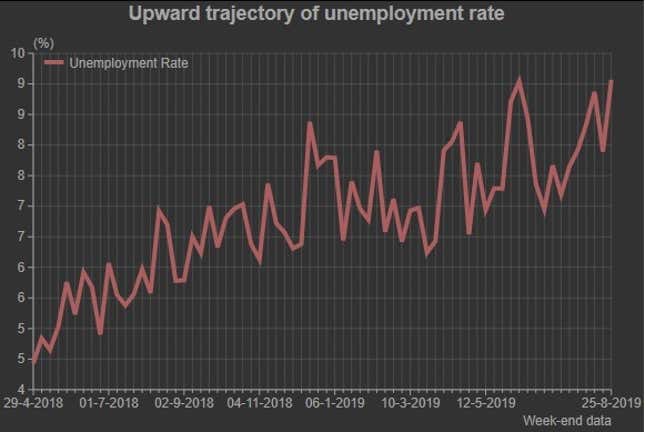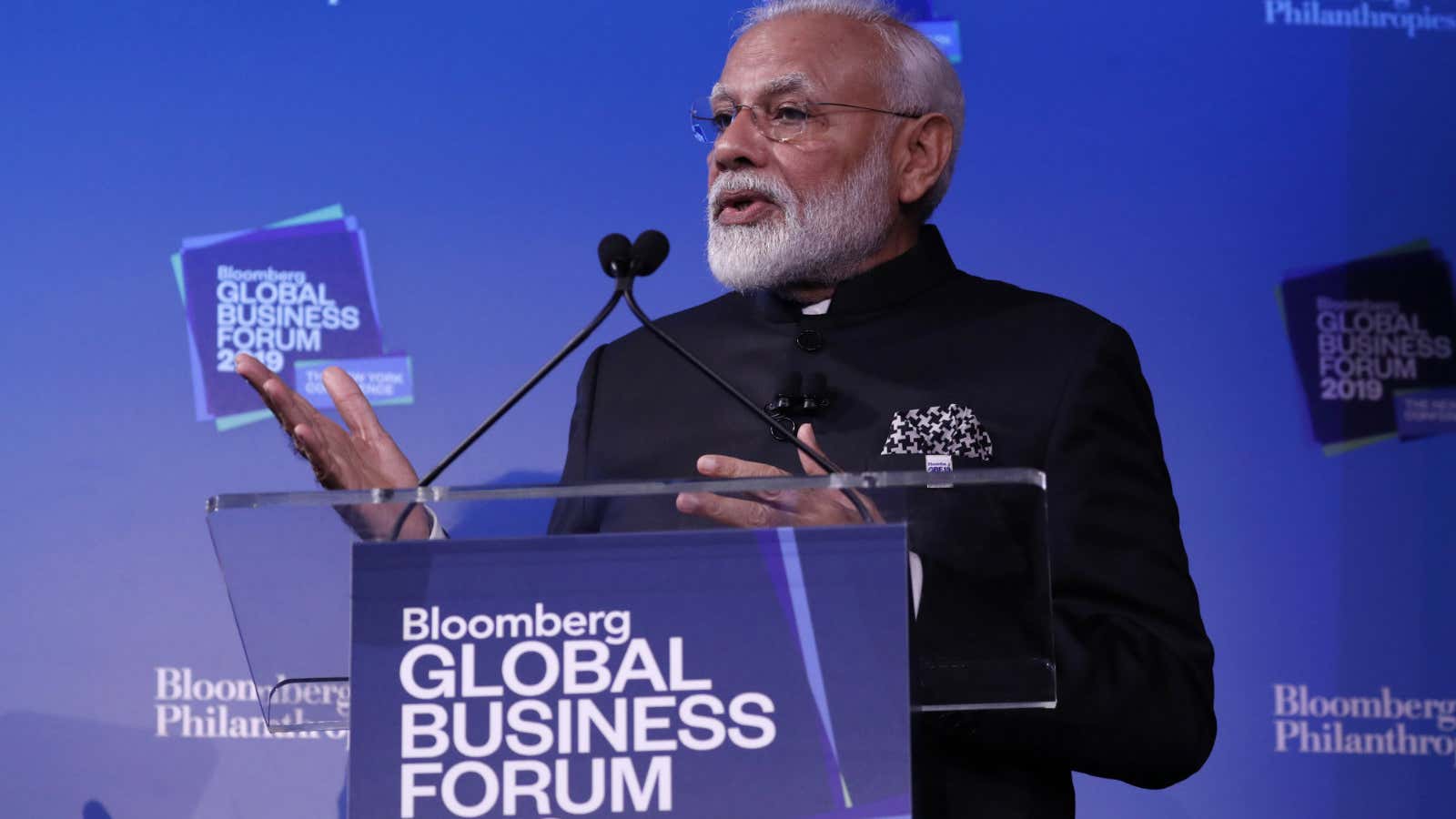Prime minister Narendra Modi, on an official visit to the US, playing the astute salesman to the hilt. Yet, while pitching India to investors, he may be obscuring some stark realities.
Addressing a galaxy of corporate leaders, including JP Morgan CEO Jamie Dimon, and Uber chief Dara Khosrowshahi, at the Bloomberg Global Business Forum in New York yesterday (Sept. 25), Modi said: “India is waiting for you… India is the only destination for you…”
The country’s “rapid growth enables us to cater to diverse demands,” he added. In reality, though, economic growth has been relatively tepid in recent times.
Here are other reasons that, according to Modi, make India an attractive destination—with a pinch of salt added by Quartz India.
Corporate tax cuts
India’s recent move to slash the effective tax rate for corporates from 35% to 25% was brandished as a “revolutionary step” by the prime minister. “India’s decision to cut corporate tax has sent a positive message,” Modi said at the Global Business Forum.
However, the Sept. 20 move, itself an acknowledgment of a weak economy, came with a major caveat. “This (the lower tax rates) would be subject to the condition that these companies do not avail of any tax incentives or exemptions,” finance minister Nirmala Sitharaman had said on Sept. 20, while announcing the move.
Indian companies, in any case, avail a host of exemptions that reduce their effective tax rate to around 25%. The effective tax rate for IT companies that operate in special economic zones (SEZs), for instance, is close to 25%. Some FMCG companies, too, currently pay less than 25% after exemptions.
These firms may not prefer the newly lowered taxes over these other benefits. A recent Kotak Institutional Equities report indeed mentioned that some big FMCG firms may not avail of the new tax rates this financial year at all.
Besides, the move is seen by some as benefiting only the corporates, with no impact on consumer sentiment, which is weak.
Purchasing power
“Our people are increasingly defeating poverty and moving up the economic ladder with increasing purchasing power,” Modi told business leaders in New York.
Yet, the eroding purchasing power of the Indian consumer is the prime reason for the economic slump. In recent time, consumers have been penny-pinching and deferring purchases of not just big-ticket items like cars, but even Rs5 biscuit packs, thanks to eroding wages and record-high unemployment levels.

Infrastructure
Modi’s claims of rapid infrastructure expansion—”Our infrastructure creation is expanding at a fast pace. From highways to metros, and airports… each sector is seeing massive potential”—does not match ground reality either.
The rate of highways construction, for instance, is forecast to slow down this year, according to a recent report by CARE ratings. Besides, many celebrated projects like the Bharatmala Pariyojana are stalled.
The state of aviation infrastructure, too, has been far from satisfactory with airlines unable to add flights due to non-availability of slots at major airports.
“For the past few years, the growth of air passengers traffic is in double digits. Today, India is the world’s third biggest aviation market,” Modi said. While India’s aviation sector has indeed logged runaway growth in recent years, performance in 2019 is likely to be muted. Air passenger traffic in the country grew merely 3.24% in January-August this year, according to data from the sector regulator.
Startup economy
Matters have been dismal in the startup ecosystem, too. Restaurant aggregator Zomato, a unicorn, recently gave the pink slip to 540 employees, or 10% of its workforce. At least five other major startups, including e-commerce marketplace Shopclues and food-tech platform Foodpanda, have laid off employees this year.
This seems to fly in the face of Modi’s claim: “From food to transport, and movies to hyperlocal delivery, our startups are acing every field.”
